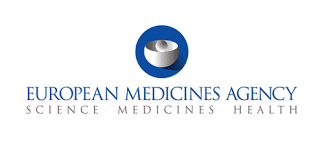A European Medicines Agency (EMA) pilot program to advise manufacturers how to minimize or avoid clinical trial requirements encountered challenges from the lack of mature quality data that applicants could provide, but participants nonetheless valued the feedback process and the agency will continue offering developers “tailored” scientific advice, the EMA said in a report.
Tailoring the development of biosimilars is of growing importance in light of the advances in knowledge and the emergence of more precise technologies for determining bioequivalence. Protein mass spectrometry, for example, is 10-million-fold more sensitive than it was a decade ago, and comparative clinical trials are now viewed as imprecise tools for determining likeness between biological agents.
The quality data submitted by 4 applicants were immature for reasons such as the limited number of batches or because the data were not obtained with material from the proposed commercial process, the report said.
That made it difficult for reviewers to make recommendations on questions such as the number and population of patients and the efficacy margins required for clinical trials.
A key insight of the pilot was that the regulatory guidelines anticipated a “stepwise” approach to comparability studies, in which early uncertainties about biosimilarity are used to determine whether and which further analyses are required. In reality, however, that analytical process occurs at the same time as clinical development, the report said
“Employing such tailored scientific advice requires adaptations in development by having a mature quality and in vitro nonclinical data package prior to the conduct of animal or clinical studies, in order for its utility not to be restricted to simple scientific advice ‘quality checks’ on the available data throughout the development,” the agency said.
For the pilot, which ran from February 2017 to April 2020, the Scientific Advice Working Party, Biologics Working Part, and Committee for Medicinal Products for Human Use agreed to conduct a more extensive scientific review than is standard.
The reviewers could give advice on differences identified at the quality level and their potential impact on the suitability of the biosimilar approach or on the need for and design of additional preclinical or clinical investigations. They could also advise whether a simplified clinical development program, such as a waiver of a clinical trial, could be granted.
Four applicants submitted 6 requests regarding biosimilar monoclonal antibodies, with one submitting 2 separate development plans and another requesting initial and follow-up advice for the same plan. The latter applicant’s second submission had a more “mature and comprehensive data package,” the report said. One applicant was a small/medium-size enterprise.
European Medicines Agency
The advice given had, in most instances, more impact on the generation of quality data per se and less impact on clinical data requirements than anticipated. It would therefore need to be seen how biosimilar development programs can be adapted to allow potentially reduced animal and clinical study requirements.
Eight other prospective applicants expressed interest in participating. Over the same period, the agency also received 71 requests for standard advice on biosimilars.
The report said the participants appreciated the opportunity to discuss their quality comparability data with regulators and considered the comprehensiveness of the advice “very important” to gain clarity and confidence in their biosimilar programs. However, due to the immaturity of the data, the advice ultimately given had more impact on the generation of data and less on clinical data requirements than anticipated.
Thus it still remains to be seen “how biosimilar development programs can be adapted to allow potentially reduced animal and clinical study requirements to be considered,” the agency said.
EMA will continue to offer tailored scientific advice as part of its regular operations, in order to further develop the advice process using specific cases and to allow the continuation of useful scientific discussions.
The report noted that the pilot completed 6 sets of advice, as planned. The initial uptake was slower than expected, which the agency said is not unusual for new types of engagement opportunities.
Asked how well their expectations for tailored scientific advice were met, 4 applicants who responded to a feedback questionnaire gave an average rating of 3.7 of 5.
Related Reading
The World Health Organization is currently revising guidelines for biosimilar development, in part to incorporate a tailored approach. The Center for Biosimilars® spoke recently with Marta Baldrighi, PhD, MSc, policy and science officer for Medicines for Europe, a trade organization, about the value of this process for bringing more competition to markets for orphan drugs and other therapeutics.

